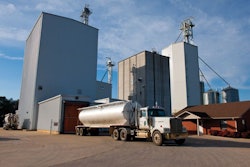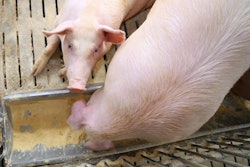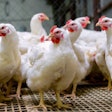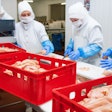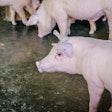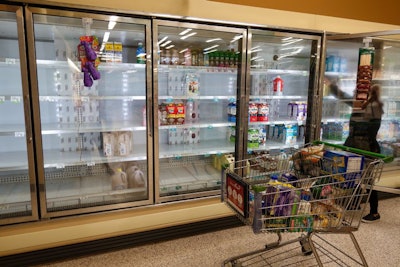
US dairy producers, farm bureau, Feeding America address paradox of oversupply and shortages
U.S. dairy producers say the financial stress from the coronavirus (COVID-19) pandemic is building across the food supply chain.
The National Milk Producers Federation and the International Dairy Foods Association estimated last week that dairy supply exceeds demand by at least 10% and is likely to worsen as stay-at-home orders continue.
“Collapse of food service industry, massive economic insecurity, export disruptions and seasonally rising milk supply (are) creating a massive gap between dairy supply and demand,” the groups said in a joint Milk Crisis Plan that outlines ways to address the problem.
The document says there has been “major supply chain upheaval” as sales at restaurants fall and grocery store demand rises.
“As a result, producers and cooperatives across the U.S. are beginning to ‘dump’ significant quantities of milk,” the groups said.
In the document, the groups listed its objectives, including:
- Use as many tools as possible – as quickly as possible – to bridge the supply/demand gap
- Provide aid to dairy producers
- Alleviate systemic financial/liquidity risks across the supply chain
- Stabilize commodity markets
- Fill U.S. food banks with dairy products for distribution
The Milk Crisis Plan also outlined initiatives to be taken by producers, processors and consumers.
Request for help stocking food banks
The American Farm Bureau Federation (AFBF) and Feeding America also sent a joint letter last week to U.S. Agriculture Secretary Sonny Perdue to recommend steps that should be taken to ensure that food banks are stocked and to help farmers respond to shifting demands.
“As you are aware, food banks are under tremendous pressure to meet the skyrocketing demand,” the letter said. “At the same time, however, we are seeing literally tons of agricultural goods being discarded because of the shutdown of so much of the economy. Paradoxically, we are seeing a simultaneous surge in demand at a moment when many farmers are being told there is an oversupply of their product. The unfortunate consequences include public panic about an adequate food supply and plunging prices for farm produce.”
AFBF and Feeding America asked for help from the U.S. Department of Agriculture (USDA) in “executing the solution.”
“This is an opportunity for USDA to act quickly to produce a win for food banks and a win for farmers. It is a chance for government to serve as a facilitator while clearing bureaucracy and red tape. We pledge our willingness to work with you and your staff in quickly implementing such a program in response to urgent, critical needs,” the letter said.


